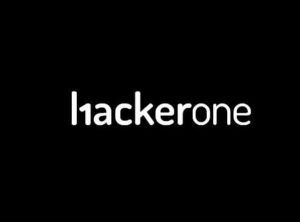Ransomware Attack On Food Distributor Spells More Pain For Uk Supermarkets
It’s more bad news for UK supermarkets with chilled and frozen food distribution business Peter Green Chilled confirming a ransomware attack with customers.
According to UK public broadcaster the BBC, which saw emails to the customers, the ransomware attack took hold on May 14 and by the following day customers were informed via email.
Managing director Tom Binks said “the transport activities of the business” were continuing to run unchanged, although at the time of the emails sent on May 15, the company had said it wouldn’t be processing new orders on that day.
The logistics provider said it would not be making any further comments about the attack itself.
The Register contacted the company and Binks for more information, but it did not immediately respond.
The phone number listed for Peter Green Chilled on its website appears to be blocking inbound calls, and its general enquiries email address is not accepting incoming messages from senders outside the organization, an Office 365 bounceback stated.
Based in Somerset, Peter Green Chilled serves most major supermarkets in the UK, including Asda, Morrison’s, Sainsbury’s, Tesco, Waitrose – plus Co-op and M&S, which are battling their own cyber-related issues.
The distribution organization also offers temperature-controlled warehousing services and boasts its own on-site custom agency.
Wilfred Emmanuel-Jones, founder of The Black Farmer, spoke to the BBC’s Wake Up to Money radio show (at the 30:15 mark) this morning, saying his company has thousands of packets of meat, due to be delivered to supermarkets by Peter Green Chilled, currently sitting in limbo as a result of the attack.
He said: “I don’t want to exaggerate, but it is pretty desperate because still we do not have a solution for how Peter Green is going to get our stock that is sitting in their warehouse delivered to the supermarkets. And if they’re not delivered in the next couple of days, because they’re fresh products, they have to be thrown away, and for a small business it is pretty devastating.
“To make matters even worse is that we’ve just also got a delivery that’s come in from Sweden that is stuck at a port because Peter Green is not taking in any other stock from any suppliers, so we have to try and find some way of getting it to the supermarkets.
“If we do not get this stock out to the retailers, that’s about a £40,000 (approx. $53,500) loss, not including the stock that’s coming in, so you can be talking – just this week – around £100,000 (approx. $133,700) worth of stock, which for us as a small business, is pretty devastating.”
According to the Financial Times, M&S is readying a cyber insurance claim of up to £100 million (approx $133.7 million) to cover the costs associated with its ransomware attack, which has been ongoing since April.
That money will cover all costs related to recovering from the attack, from restoring systems, perhaps replacing them in some cases, plus the cost of downtime, which as illustrated by The Black Farmer, can rise to dizzying sums even for small businesses.
M&S is a much larger beast, however, and the profit & loss implications of the attack aren’t likely to be confirmed for some months. Its annual financial results are due to be published on Wednesday, but these will only cover the year ending March 2025, the month before the attack took place.
Attacks on key supply chain players are often the most disruptive and more vivid – they play out in the public eye with the effects on daily life clear to see for all. Simple data smash and grabs are less attention-grabbing and not seen by the masses as substantially problematic.
However, ransomware crooks love supply chain attacks. The disruption that comes with them inherently builds pressure on the victim to pay, as their own costs rack up, as well as that of their business partners.
Raghu Nandakumara, head of industry solutions at Illumio, said: “this latest attack on Peter Green Chilled highlights a troubling trend: the UK retail sector is under siege from increasingly aggressive cybercriminals.
“But it’s not just retailers who suffer; these attacks directly impact the public. When systems go down, people can’t shop for essentials or access services they rely on. The societal impact of attacks is significant.
“We’re seeing a shift from data theft to outright operational disruption, as attackers target critical systems to force faster payouts. Ransomware is proving more damaging than isolated data breaches, with many businesses facing major downtime, reputational harm, and financial loss. Now more than ever, retailers must prioritize operational resilience and adopt controls that can prevent attackers from reaching their most vital systems.” ®
A considerable amount of time and effort goes into maintaining this website, creating backend automation and creating new features and content for you to make actionable intelligence decisions. Everyone that supports the site helps enable new functionality.
If you like the site, please support us on “Patreon” or “Buy Me A Coffee” using the buttons below
To keep up to date follow us on the below channels.


![[QILIN] - Ransomware Victim: Doha British School 3 image](https://www.redpacketsecurity.com/wp-content/uploads/2024/09/image-300x300.png)

